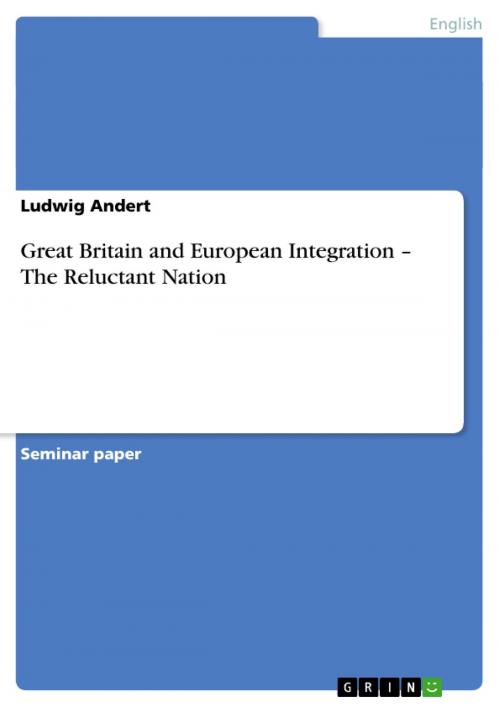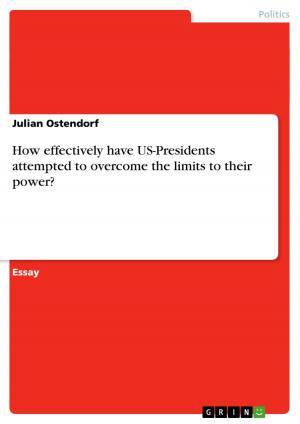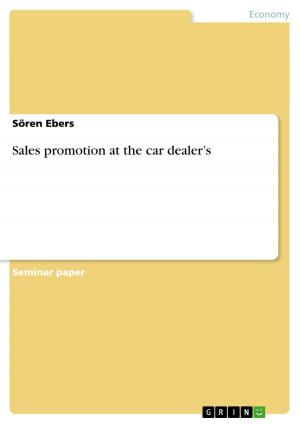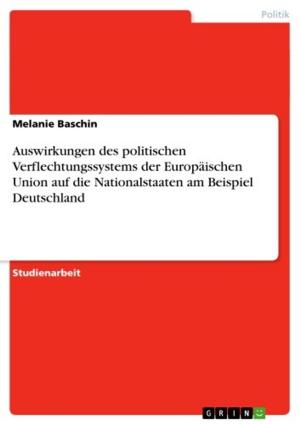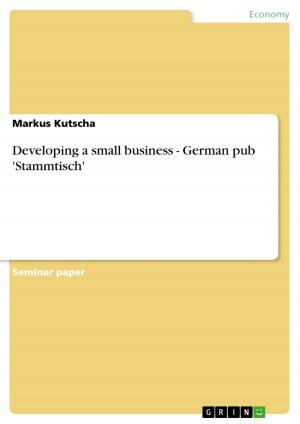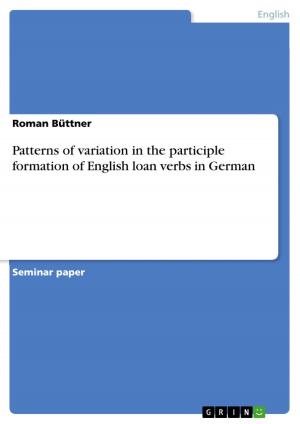Great Britain and European Integration - The Reluctant Nation
Nonfiction, Reference & Language, Study Aids, ESL, Foreign Languages| Author: | Ludwig Andert | ISBN: | 9783640089017 |
| Publisher: | GRIN Publishing | Publication: | April 22, 2007 |
| Imprint: | GRIN Publishing | Language: | English |
| Author: | Ludwig Andert |
| ISBN: | 9783640089017 |
| Publisher: | GRIN Publishing |
| Publication: | April 22, 2007 |
| Imprint: | GRIN Publishing |
| Language: | English |
Seminar paper from the year 2006 in the subject English Language and Literature Studies - Culture and Applied Geography, grade: 1,0, University of Sheffield, course: Britishness, Englishness, Otherness, language: English, abstract: This slightly exaggerated statement by the Bolshevik revolutionary, though referring to a soviet-republican idea of Europe, marks the borderlines of British ambivalence towards European integration after 1945: the fear of a supranational federation and the need for a peaceful, stable and free-trading Europe. 'I am British. I am not European' - These are the words of a shopkeeper who among a small group of other 'metric martyrs' in 2001 refused to attach to the metric system that had been imported to Great Britain.2 This man was not a philosopher, a historian and certainly not a politician, and his fundamental belief did not refer to the Union, the Empire or the Continent, but to himself as an individual. Is Great Britain's reluctance to join the European Union - or rather: to consider oneself European - based entirely on metaphysical convictions, on emotions and ancient sentiments such as 'the Empire'? Or are there reasonable arguments for British refusal of European alliance - economical reasons, considerations of power or even force? Do the British consider themselves part of an 'Anglo-American' axis or merely a bridge between Old Europe and the New World? The following text gives an overview of the process of European integration from a British perspective. It will further discuss the difficulties in defining the difference between 'British' and 'European' as an attempt to answer the question whether the United Kingdom can be European while remaining British at all.
Seminar paper from the year 2006 in the subject English Language and Literature Studies - Culture and Applied Geography, grade: 1,0, University of Sheffield, course: Britishness, Englishness, Otherness, language: English, abstract: This slightly exaggerated statement by the Bolshevik revolutionary, though referring to a soviet-republican idea of Europe, marks the borderlines of British ambivalence towards European integration after 1945: the fear of a supranational federation and the need for a peaceful, stable and free-trading Europe. 'I am British. I am not European' - These are the words of a shopkeeper who among a small group of other 'metric martyrs' in 2001 refused to attach to the metric system that had been imported to Great Britain.2 This man was not a philosopher, a historian and certainly not a politician, and his fundamental belief did not refer to the Union, the Empire or the Continent, but to himself as an individual. Is Great Britain's reluctance to join the European Union - or rather: to consider oneself European - based entirely on metaphysical convictions, on emotions and ancient sentiments such as 'the Empire'? Or are there reasonable arguments for British refusal of European alliance - economical reasons, considerations of power or even force? Do the British consider themselves part of an 'Anglo-American' axis or merely a bridge between Old Europe and the New World? The following text gives an overview of the process of European integration from a British perspective. It will further discuss the difficulties in defining the difference between 'British' and 'European' as an attempt to answer the question whether the United Kingdom can be European while remaining British at all.
